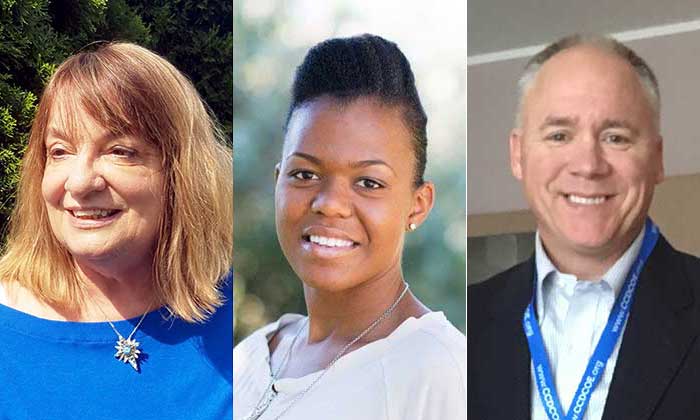Aiming to use their talents to support cyber education, training and workforce development, a Marymount University professor and two doctoral students are now members of a federal working group for cybersecurity education solutions.
Dr. Donna Schaeffer, Professor of IT, Data Science and Cybersecurity at Marymount, and doctoral student Shenita Freeman have joined fellow doctoral student David Halla on the National Initiative for Cybersecurity Education (NICE) Working Group, established through the National Institute of Standards and Technology (NIST).
“This is an excellent opportunity for the students, as their dissertation studies tie directly to the initiative’s mission,” Dr. Schaeffer said. “So the synergy is there for Marymount to contribute to societal workforce needs.”
The mission of NICE is to energize and promote a robust network and an ecosystem of cybersecurity education, training and workforce development. NICE fulfills this mission by coordinating with government, academic and industry partners to build on successful existing programs, facilitate change and innovation and bring leadership and vision to increase the number of skilled cybersecurity professionals helping to keep the nation secure.
The NICE Working Group, specifically, has been established to provide a mechanism in which public and private sector participants can develop concepts, design strategies and pursue actions that advance cybersecurity education, training and workforce development.
Freeman, a Senior Director of Analytics and Informatics for Centurion, LLC, aims to use her doctoral degree to help integrate cybersecurity into public health degree programs. She has previously submitted resources that were published by the Cyberspace Solarium Commission (CSC).
“The content and purpose of the NICE working group meetings is directly in alignment with my dissertation topic, and since starting to attend, I’ve helped support testing survey instruments,” Freeman explained. “It’s also a great opportunity for me to stay in the loop with updates to cybersecurity education, and to connect with other professionals who are interested in advancing cyber education to protect our nation and all of its assets.”
Halla, meanwhile, is a Senior Cybersecurity Engineer at the Applied Physics Laboratory at Johns Hopkins University. He is also a member of the Department of Homeland Security’s Control Systems Working Group and a leader on its Workforce Development subgroup. Currently, he is studying how effective apprenticeship programs can fill gaps in the cyber workforce.
“By participating in this group, I have made direct contacts with the leads of a large number of cybersecurity apprenticeship programs throughout the country, which will help me conduct the required interviews and survey for my dissertation,” Hall said. “In addition, I am also a member of the comparative analysis subgroup, which will further aid my dissertation in being able to compare cybersecurity apprenticeships to the higher education cybersecurity degree programs as a means to help answer the critical job shortage of qualified cybersecurity professionals.”
The working group meets monthly, and a report on skills gaps and recommendations is forthcoming.





